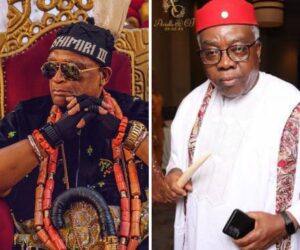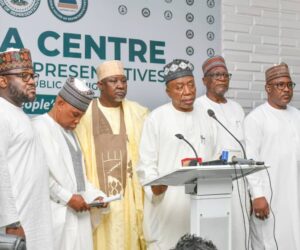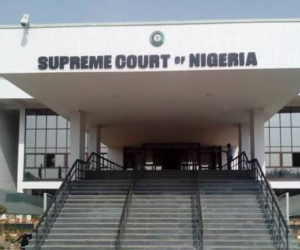1
Bruce Vine, the international counsel to the detained leader of the Indigenous People of Biafra (IPOB), Mazi Nnamdi Kanu, has revealed that he and his team have prepared a petition to the United States government seeking sanctions against top Nigerian officials over their role in the continued detention of his client.
Vine disclosed this in a video presentation obtained on Wednesday by THE WHISTLER where he accused Nigerian authorities of systematically violating Kanu’s fundamental rights for more than four years.
According to him, the petition, addressed to the U.S. President Donald Trump, requests that six senior Nigerian officials, five judges, and a former minister be listed under the Global Magnitsky Human Rights Accountability Act.
“To qualify for listing, you need to be systematically engaged in a violation of internationally recognized human rights. And all of these listed individuals have been engaged in persecution of Amazi Nnamdi Kanu for over four years, denying him a right to fair trial, denying him a right to freedom, denying him a right to speak with counsel, and most importantly, denying him a right to free speech,” Vine stated.
He stressed that the core of Kanu’s struggle has been peaceful advocacy for the Biafran people to decide their political future. “They are trying to punish him for peaceful advocacy of a time-honoured justification for self-determination, most recently undertaken in South Sudan, for the Biafran people to decide whether they wish to chart their own destiny as opposed to remaining in the Nigerian orbit,” he said.
Vine further argued that the foundation of Nigeria’s unity lacked legitimacy. “Remember that the Biafrans never did join Nigeria. There was never any vote for Biafrans to say, we want to be collectivized, as the British ordained in 1914.
“You don’t need to secede from a company that you never joined in the first instance. And that’s what Nnamdi Kanu’s campaign is about, and indeed, the higher campaign from Biafrans,” he explained.
On the implications of a Global Magnitsky listing, Vine noted that such sanctions would have severe diplomatic and financial consequences for the targeted officials.
“This particular provision of the Global Magnitsky Act empowers the president to freeze all the assets and to prohibit any travel to the United States of any person listed under the act, which means they would never travel to the United States.
“Many of them may have homes here, may have stocks here, all of those be frozen. They couldn’t do any business here ever,” he said.
He added that beyond financial penalties, the stigma of the designation carried a heavy reputational cost.
“Moreover, the Magnitsky Act also is stigmatizing. It brands you as someone worthy of others who are listed, who are notorious criminals, the president of North Korea and others that are household words for violating human rights,” he emphasized.
Vine explained that the legal team only turned to the Magnitsky Act after exhausting other peaceful avenues, including appeals to the United Nations.
“It’s not a choice that we made initially. We worked very hard with the UN Working Group on Arbitrary Detention to try to get Nigeria to comply with its order to immediately and unconditionally release Mazi Nnamdi Kanu,” he recalled.
According to him, Nigeria rejected every appeal. “We pleaded with Nigeria, here’s the directive, just please comply with it. All we got was no, no, no. We’ll ignore everything,” Vine said.
He stressed that the petition to the U.S. government is one of the last available measures to seek accountability outside Nigeria.
“So after all peaceful avenues of redress have been exhausted, we are now resorting to the Global Magnitsky Act as one of the final ways we can hold Nigeria accountable outside the corrupt Nigerian system.
“The President of the United States has its own independent authority to exert the powers of the United States to pressure Nigeria to comply with the Working Group decision, and that’s what this petition seeks to accomplish,” Vine declared.







